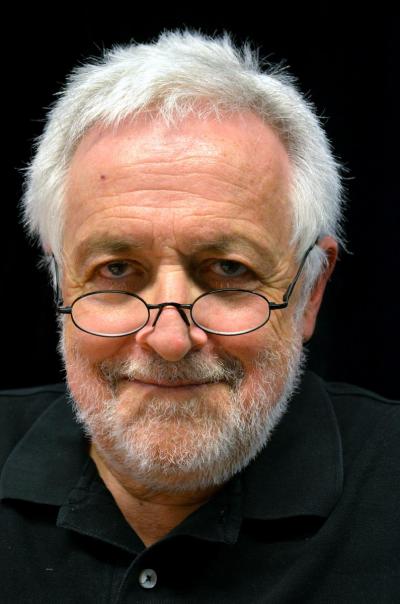Henryk Marcin Broder: German thinking with Jewish rationality and a Polish heart

The world and the axis of good
Henryk Marcin Broder’s critical journalism is feared by many and is loved by many (often secretly). Given his fascinating, unconventional and pointed statements, ambivalence is not an option. What is striking is the fact that his astute analyses are preceded by a very particular talent for observation which is marked by a love of detail. The key to his success, however, comes from a special mixture of irony, sarcasm, provocation and entertainment that only he has.
Henryk M. Broder was born Henryk Marcin Broder into a Polish-Jewish family in Katowice in Upper Silesia, Poland on 20 August 1946. In 1957, his family left for the West, presumably because of the noticeable rise in anti-Semitism at the time[1], first travelling to Vienna and then, in 1958, to the Federal Republic of Germany where they stayed permanently.
Eleven years in Poland would certainly have left their mark on him and shaped not just the start of his life in his new home but presumably his entire life there. He was probably predestined to write. He started writing very early on in Hamburg and discovered the power of words. German is his working language, he can still speak Polish without an accent today, Hebrew comes naturally to him, and Russian (where his father came from) is probably active when called upon.
When he began his work as a journalist, he appeared to enjoy working on all aspects of the world. Injustice, the atrocities of power, the abysses of politics, but also the constant pursuit of the “unbearable lightness of being”[2] would all become important topics for him that have endured to the present day. Broder, and this is probably the main characteristic of emigrants from Eastern Europe, is notoriously and occasionally annoyingly curious and permanently on the go so that he can see as much as possible without the fear of missing out. He became a keen observer but this keenness has an almost microscopic character and, in his writings, sometimes results in a curious choice in the meaning of his subject matter. He seems to want to tell us that you can sometimes read more from the details that are usually overlooked than is the case with the motifs that the mainstream prefers to focus on.
This type of perspective can often be seen in migrants from Poland who really scan American films from the golden era of Hollywood – one of the few windows to the world in their long isolated country – for this type of detail, which viewers from the West would not even think about. Their curiosity about life behind the iron curtain was simply so great that they were not just interested in how the famous actors looked, they were also fascinated by the environment, the props, the behaviours and generally any scraps of reality which would help them read this far-off world.
[2] Milan Kundera, Unbearable lightness of being, (Czech: Nesnesitelná lehkost bytí) 1984


